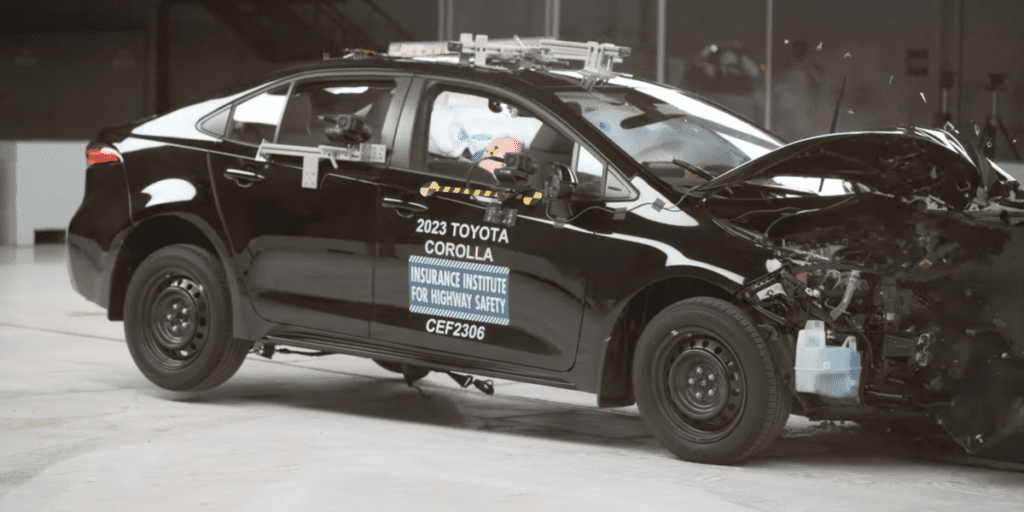Crash Tests Show Small Cars Aren't Protecting Rear Occupants Well

This content is imported from youTube. You may be able to find the same content in another format, or you may be able to find more information, at their web site.
The Insurance Institute for Highway Safety released findings on a set of crash tests that show small passenger cars can’t protect rear-seat occupants as well as front passengers.
The IIHS tested five small 2023 model-year cars using its moderate overlap crash test: the Honda Civic, the Toyota Corolla, the Kia Forte, the Nissan Sentra, and the Subaru Crosstrek. None were able to achieve an overall crash test rating of Good, with only the Civic and the Corolla being marked as Acceptable. The other three were given Poor ratings from the IIHS.
IIHS
The lackluster ratings stem from the lack of modern protections afforded to rear-seat occupants. The IIHS found that in all five cars tested, the rear dummy would “submarine” on impact, increasing the risk of fatal injury. Submarining occurs when the lap part of the seatbelt slides up into the abdominal region, making internal injuries more likely in the event of a crash.
These findings aren’t the result of diminishing rear-seat occupant safety equipment, but a byproduct of the increasing safety standards given to occupants up front, in the form of more advanced seatbelt and airbag designs. Basically, the IIHS is saying it wants to see this new tech make its way to rear seats too.
Despite the results, the IIHS says the rear seats remain the safest place for young children, who can be injured by an inflating front airbag.

Road & Track staff writer with a taste for high-mileage, rusted-out projects and amateur endurance racing.



